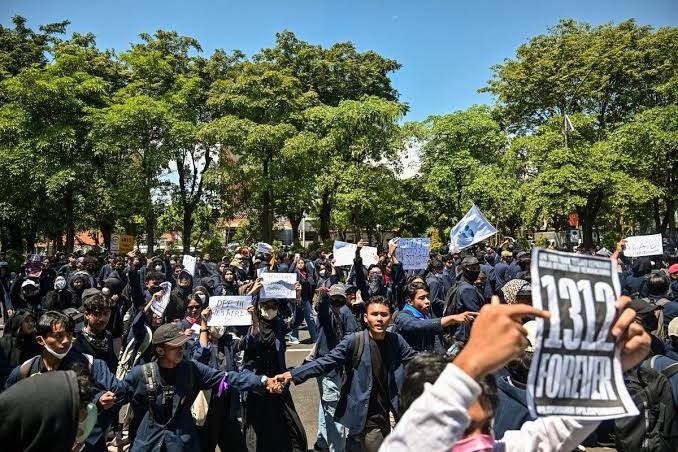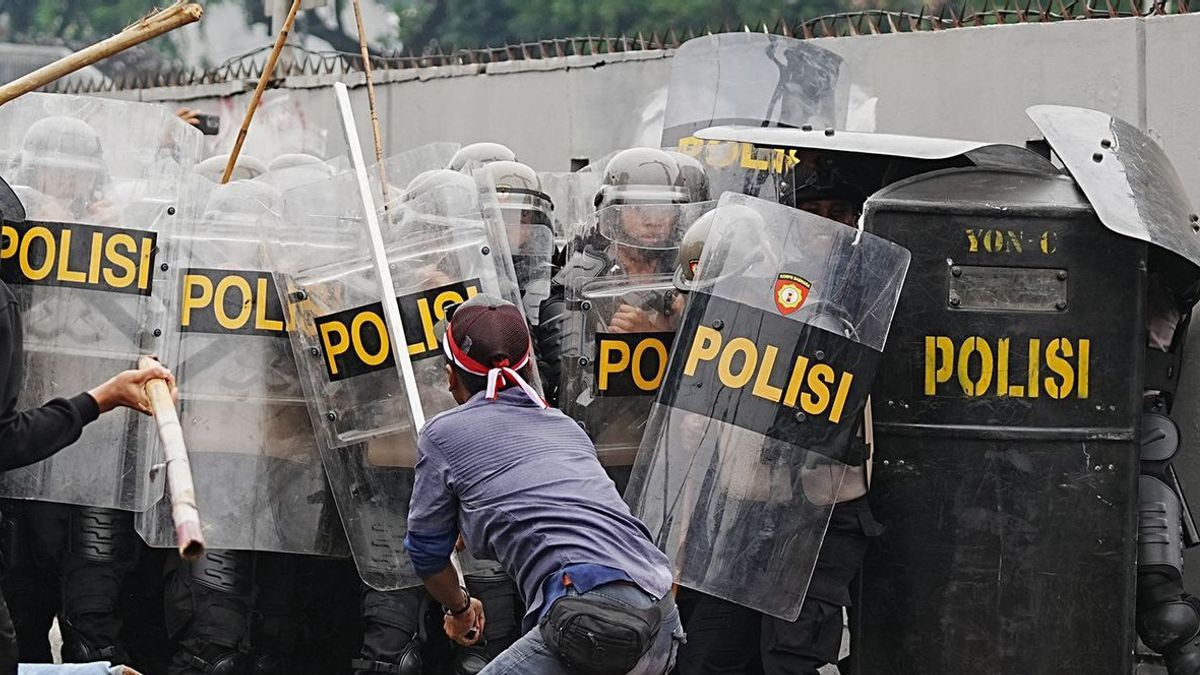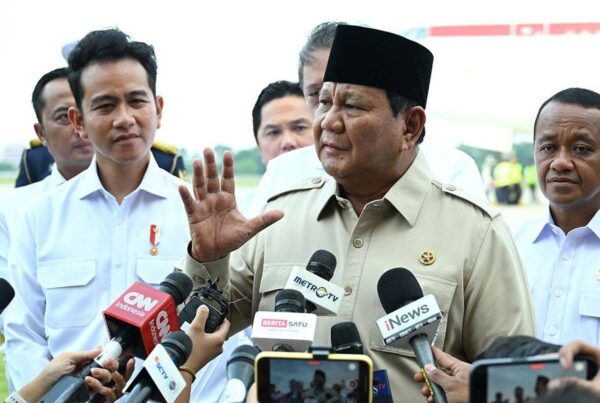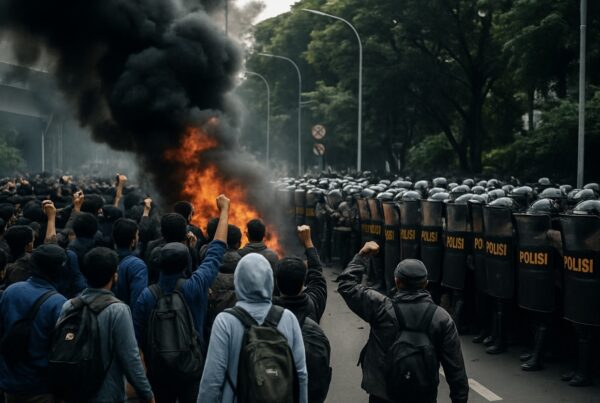Mass demonstrations have erupted across Indonesia since late August 2025. Thousands poured into the streets to protest against a controversial housing allowance of 50 million rupiah per month for lawmakers in the DPR Indonesia (House of Representatives), seen as insensitive amid the nation’s economic hardship. Tensions escalated further when Affan Kurniawan, a 21-year-old motorcycle taxi driver, was killed after being struck by a police tactical vehicle in Jakarta. His death fueled public anger over alleged police brutality, igniting a nationwide protest movement that has now become a major test for President Prabowo Subianto’s administration, just one year into office.
Escalation and Casualties
What began as peaceful rallies quickly spiraled into violent clashes. Regional DPRD buildings in Solo, Makassar, and Bandung were set ablaze by protesters. Three people died after being trapped in the Makassar DPRD building. In Jakarta, dozens of public facilities, including bus shelters, police posts, and traffic lights, were torched. Reuters reported police firing tear gas and water cannons to disperse crowds. Amnesty International urged authorities to ensure law enforcement remained non-violent.
Civilian deaths have already been recorded, including Affan, while police confirmed hundreds of officers were injured by stones and fireworks. Thousands of arrests have been made in Jakarta, but the crackdown has not quelled public fury. Al Jazeera described the capital as “tense and chaotic,” with a five-story building in Kwitang burned down and clashes breaking out near Petamburan.
Fears of Police Shootings
Rumors of live ammunition use spread quickly on social media. Viral videos warned protesters that combined TNI-Police forces had been armed with orders to “shoot on sight.” Although the government has not confirmed such directives, the mere suggestion sparked widespread fear. Local television footage showed army troops deployed in central Jakarta to reinforce police lines. Kompolnas urged all sides to show restraint, while President Prabowo promised accountability for misconduct. “I will not allow brutality to tear this nation apart,” Prabowo declared in an official address.
So far, live ammunition has not been used. However, with tensions still rising, the possibility of police shootings at DPR Indonesia protests remains a pressing public concern.
Looting of Politicians’ Homes
Public anger soon targeted the personal residences of lawmakers. Ahmad Sahroni’s luxurious home in Tanjung Priok was stormed by hundreds, ransacked, and vandalized. His vehicles were smashed and household items looted. This followed Sahroni’s controversial remark labeling those calling for parliament’s dissolution as “the dumbest people in the world.” Sahroni reportedly fled to Singapore before the incident.
Shortly after, Eko Patrio’s home in Setiabudi, South Jakarta, was attacked. Videos showed mobs carrying away electronics and furniture. Eko, abroad at the time, later issued a public apology on Instagram. Meanwhile, Uya Kuya’s house in South Jakarta was also raided. Even his pet cat was reportedly taken. Uya stated his family was safe but expressed sadness over the incident.
Who Is Next?
With Sahroni, Eko, and Uya already targeted, speculation grew about who could be next. Social media users circulated the names of Finance Minister Sri Mulyani, Investment Minister Bahlil Lahadalia, and celebrity-turned-lawmaker Nafa Urbach. Some posts even included residential addresses of politicians. Although no further attacks have yet occurred, police and military have tightened security around top officials’ residences, including that of Speaker Puan Maharani.
Political observers argue these attacks reflect deep-seated frustration. Researcher Made Supriatma warned: “If Prabowo isn’t careful, these protests could spiral into chaos.” The Guardian echoed similar concerns, highlighting the risk of nationwide unrest if authorities respond too harshly.

Political and Economic Fallout
The protests are already rattling Indonesia’s stability. The stock market dropped 2.3 percent, and the rupiah slid to its weakest level in weeks. Foreign embassies, including those of the United States and Australia, issued security alerts advising citizens to avoid central Jakarta. Government promises to review parliamentary allowances have not satisfied protesters.
President Prabowo faces a critical dilemma. Restraint risks being seen as weakness, yet a heavy-handed crackdown could escalate violence and further erode trust. Amnesty International cautioned the government against repeating past human rights abuses. “Excessive force will only worsen the crisis,” the group stated.
The Road Ahead
Indonesia now stands at a crossroads. Protesters demand the repeal of DPR Indonesia allowances, justice for Affan, and systemic police reform. Without dialogue and concrete steps, looting and clashes could intensify, and fears of police shootings will linger.
This unrest has become a test of Indonesia’s democratic resilience. Will Prabowo defuse tensions through reform and accountability, or will his administration resort to force and risk reopening old wounds?
Read more of our in-depth analysis on Indonesia’s political crisis and related coverage on Southeast Asia.





